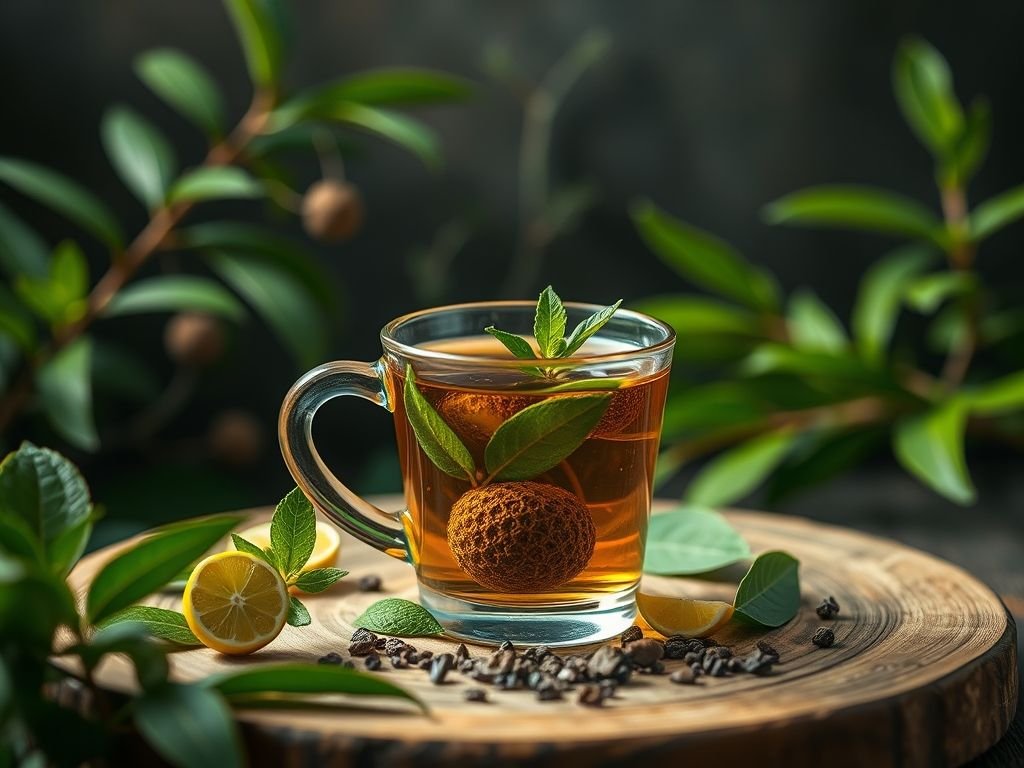Definition of Natural Herbal Teas
Natural herbal teas are beverages made by infusing various parts of plants, such as leaves, flowers, seeds, and roots, in hot water. Unlike traditional teas made from the Camellia sinensis plant (like green or black tea), herbal teas can include a wide variety of ingredients, each offering unique health benefits. They are caffeine-free and are often consumed for their therapeutic properties, making them a popular choice among individuals looking to improve their overall health.
The Importance of Natural Herbal Teas
In a world increasingly focused on health and wellness, natural herbal teas have gained prominence due to their perceived benefits. They serve as a natural remedy for various ailments and offer an alternative to conventional pharmaceuticals. For adults aged 25 to 50, these teas can play a significant role in weight loss, anxiety management, and overall wellness.
Health Benefits of Herbal Teas
Herbal teas are known for their wide range of health benefits. Here are some notable examples:
- Weight Loss: Teas like green tea and hibiscus can boost metabolism and aid in weight loss efforts.
- Anxiety Relief: Chamomile and lavender teas are renowned for their calming effects, helping to reduce stress and anxiety levels.
- Digestive Health: Peppermint and ginger teas can soothe digestive issues and promote gut health.
Popular Types of Natural Herbal Teas
There are numerous types of herbal teas, each with its unique properties. Here are some of the most popular:
- Chamomile: Known for its relaxing properties, often consumed before bedtime.
- Peppermint: Aids digestion and provides a refreshing flavor.
- Ginger: Offers anti-inflammatory benefits and can help boost the immune system.
- Hibiscus: Rich in antioxidants, it can support heart health and lower blood pressure.
How to Brew Natural Herbal Teas
Brewing herbal tea is a simple process, but knowing the right techniques can enhance the flavor and benefits. Here’s a step-by-step guide:
- Choose Your Herbs: Select the herbs based on your desired benefits.
- Measure: Use 1-2 teaspoons of dried herbs or 1-2 tea bags per cup of water.
- Boil Water: Bring water to a boil, then let it cool slightly for delicate herbs.
- Steep: Pour water over herbs and let steep for 5-15 minutes, depending on the herb.
- Strain and Enjoy: Strain the herbs and enjoy your tea hot or iced.
Applications of Natural Herbal Teas in Daily Life
Integrating herbal teas into your daily routine can be easy. Here are some practical applications:
- Morning Boost: Start your day with a cup of ginger tea to energize and boost your metabolism.
- Afternoon Calm: Sip on chamomile during your afternoon break to unwind and reduce stress.
- After Dinner Digestive: Enjoy peppermint tea post-meal to aid digestion.
Understanding natural herbal teas also involves exploring related concepts in herbalism and wellness:
- Herbal Remedies: The use of plants for medicinal purposes, closely related to herbal teas.
- Holistic Health: An approach to health that considers the whole person, including physical, mental, and social factors.
- Aromatherapy: The use of essential oils for therapeutic benefits, often complementing herbal tea consumption.
Conclusion
Natural herbal teas offer a wealth of benefits for those seeking to enhance their health and well-being. By understanding the various types, their uses, and how to integrate them into your daily routine, you can leverage these natural remedies effectively. Whether you're looking to lose weight, manage anxiety, or simply enjoy a comforting beverage, herbal teas can be a valuable addition to your lifestyle.
As you explore the world of natural herbal teas, consider your personal health goals and experiment with different blends to find what works best for you. Enjoy the journey of discovering the perfect herbal tea that resonates with your wellness aspirations!

